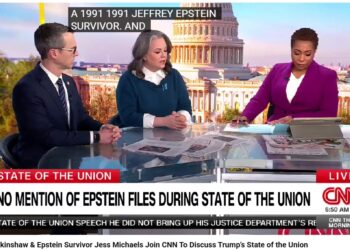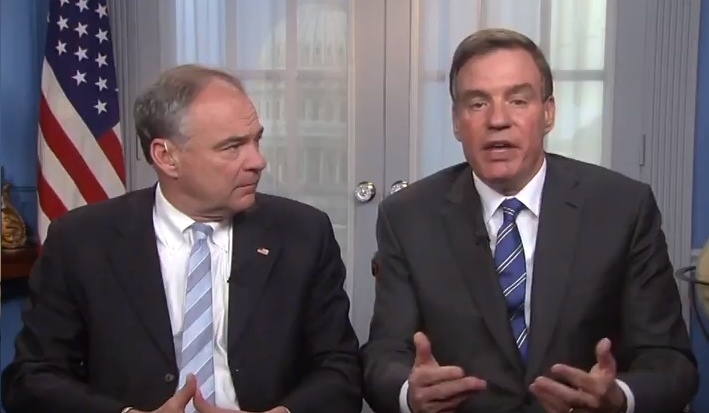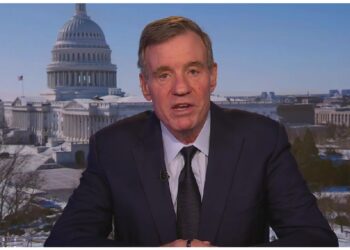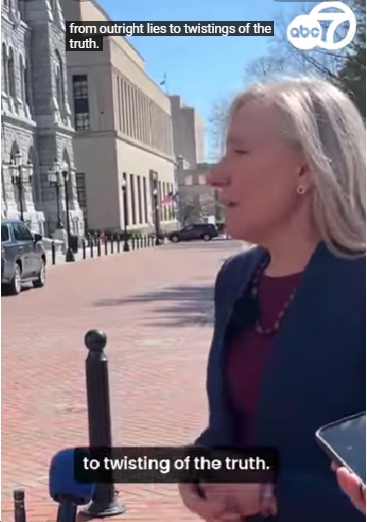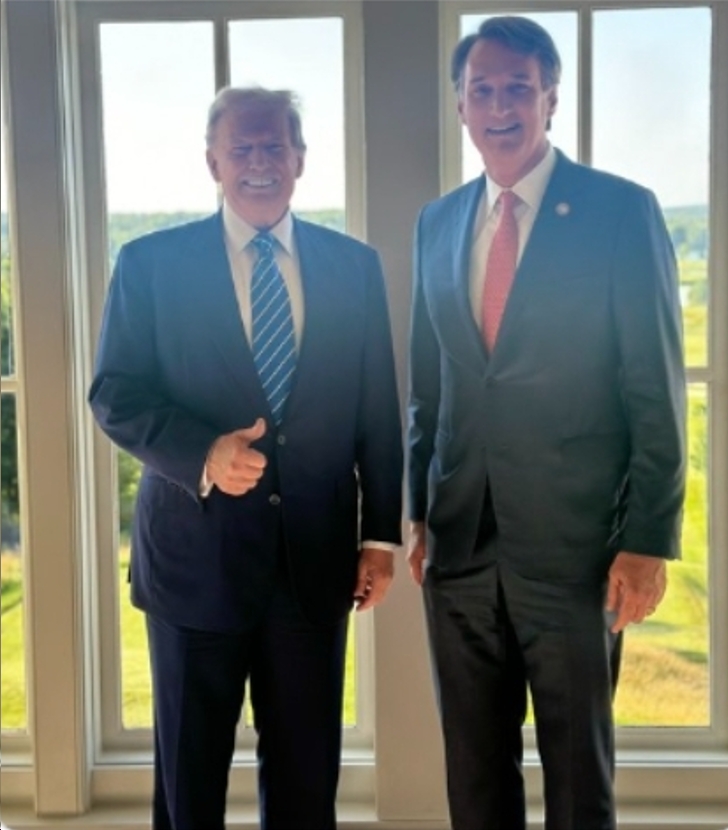On “Meet the Press this morning,” Sen. Mark Warner had some interesting things to say regarding Iran and impeachment. See below for some highlights and video.
- “I accept the notion that there was a real threat. The question of how imminent is something that I need more information on.”
- “Soleimani now is being almost a rally rallying force not only with within Iran, but as we may hear later today even in Iraq where we may be now asked to leave.”
- “…there is usually a congressional consulting process. It’s both constitutionally required, but it’s also important because one, you potentially get members of Congress to buy in ahead of time; and two, they may ask that hard question that’s not asked in an insular group; and three, you consult your allies, because we don’t want to go this alone – and what we’ve already seen by not consulting, particularly with our NATO allies, we’ve seen that the NATO forces in Iraq have already stopped training the Iraqi troops; that again does not make us stronger.”
- “I’m not sure the president, by his kind of taunting tweets, is necessarily trying to de-escalate. I’m not sure how we will be seen as both stronger and smarter if we have our Iraqi allies asking us to leave, if our NATO allies don’t feel like they’re gonna be informed, before we take this kind of action – and frankly, if the people in the region that were against the Iranian regime all across the region are now rallying against America.”
- “Taking out Soleimani, it may have some short-term benefit, but the smartness in terms of in the region with our allies and bringing along the American people – I think the jury is really out on that.”
- “I think Congress has to do both of our constitutional responsibilities: one, protect the American people and be a co-equal branch of government with the administration to make sure that we keep Americans safe. Secondly, we also have to take on the responsibility of what’s going to come over at some point from the House, and that’s to conduct a full and fair trial.”
- “I still have hopes that as we all step up and take that oath to be impartial jurors that there can be agreement amongst the Senators, all of our colleagues, that we ought to make sure we get the facts. And part of the facts ought to be, let’s make sure we hear from people with direct knowledge of what happened in the case of the situation with Ukraine. We’ve seen already in the last couple of weeks over the holidays where information has trickled out with additional documents. Why wouldn’t we want to have that information before we hear? This could actually exonerate the president, but you’ve got to be able to have that information when these individuals come forward.”
NBC’s Meet the Press
TODD: Joining me now is the Vice Chair of the Senate Intelligence Committee. It’s Democrat Mark Warner of Virginia. Senator Warner, welcome back to Meet the Press.
WARNER: Thank you, Chuck.
TODD: You’re one of the few Democratic lawmakers that has been briefed after the fact.
WARNER: After the fact.
TODD: Apparently nobody other than Lindsey Graham may have gotten a briefing before the fact. I want to focus on this threat. You heard what the Secretary of State said there. You’ve been briefed about what this threat was. How imminent does it seem and is it any different than what Soleimani has been doing over the last decade?
WARNER: I accept the notion there was a real threat. The question of how imminent is something that I need more information on. Let’s step back for a moment and look at what’s happened. America always has to be strong, but also smart. Strong in the sense that we always need to protect our people and our interests and Soleimani was a bad guy, there’s no question about that. But we also have to be smart. There are three things that I didn’t hear from the Secretary and I have not heard from the administration. First, over the last month, we’ve seen across the region great pushback against Iran, not only in Iran itself from the people protesting against the regime; in Lebanon where people were on the streets saying too much Iranian influence; in Iraq even where people were protesting against the Iranian-backed militias. That anti-Iranian effort now seems to have transformed, as we’ve seen the images over the last 24 hours into, anti-American activity.
TODD: So you’re concerned now that Soleimani is being used to rally…
WARNER: …As a rallying force not only within Iran, but as we may here later today, even in Iraq where we may be now asked to leave.
TODD: By the way, there’s breaking news. The prime minister of Iraq is recommending that.
WARNER: Which again, how does that make us stronger? Secondly, there is usually a congressional consulting process. It’s both constitutionally required, but it’s also important because, one, you potentially get members of Congress to buy in ahead of time and, two, they may ask that hard question that’s not asked in an insular group. Three, you consult your allies, because we don’t want to go at this alone. What we’ve already seen by not consulting particularly with our NATO allies, we’ve seen that the NATO forces in Iraq have already stopped training the Iraqi troops. That again does not make us stronger.
TODD: How do we get out of this now? The reason I say this, it’s sort of…it’s broken. Colin Powell used to call this the Pottery Barn Rule. Soleimani has been killed. The Iranians are going to retaliate. Can you imagine us not retaliating against that retaliation? And would that be prudent?
WARNER: Again, Soleimani, taking him out was a big thing. This is one of the top three leaders in Iran. Thinking through all those consequences if you take this action—that’s what I want to hear from the administration that I have not heard so far. I know the Secretary of State is trying in his own words to de-escalate. I’m not sure the President by his kind of taunting tweets is necessarily trying to de-escalate. I’m not sure how we will be seen as both stronger and smarter if we have our Iraqi allies asking us to leave, if our NATO allies don’t feel like they’re going to be informed before we take this kind of action, and frankly if the people in the region that were against the Iranian regime all across the region are now rallying against America.
TODD: Let’s say there’s a democratic president coming next. How does the next administration — Iran is not going to deal with any presidential administration for a while. They’re not going to trust anything. It feels like we’re going to get backed into something here… backed into a military conflict whether we like it or not.
WARNER: I hope and pray that’s not the case. But how we get a path off this, in a way where you can bring the American people, you can bring allies, you can bring people in the region, those are the questions that I think we all, Democrats and Republicans, need to ask the administration this week.
TODD: I know diplomacy is never supposed…it’s never too late for diplomacy, but with this Iranian regime, is it?
WARNER: Well, there was a reason why, under administrations Democratic and Republican alike in the past, President Obama, both President Bushes, President Clinton, you go through that process of working with your allies, you go with the process of consulting with Congress. You don’t always get it right but you always try to be strong and smart. Taking out Soleimani may have some short-term benefit. But the smartness, in terms of in the region… with our allies… and bringing along the American people, I think the jury is really out on that.
TODD: Let me ask you a question for any of these senators right now. There’s supposed to be an impeachment trial at some point. We’ve got this situation with Iran. What should be the focus of Congress right now?
WARNER: I think Congress has to do both of our constitutional responsibilities. One, protect the American people and be a co-equal branch of government, with the administration, to make sure we keep Americans safe. Secondly, we also have to take on the responsibility of what’s going to come over at some point from the House and that’s to conduct a full and fair trial.
TODD: You said at some point. Should Speaker Pelosi send these over tomorrow?
WARNER: I still have hopes that as we all step up and take that oath to be impartial jurors that there can be agreement amongst the senators, all of our colleagues, that we ought to make sure we get the facts. Part of the facts ought to be: let’s make sure we hear from people with direct knowledge of what happened in the case of the situation with Ukraine. We’ve seen already in the last couple weeks over the holidays where information has trickled out with additional documents. Why wouldn’t we want to have that information? This could actually exonerate the President, but you’ve got to be able to have that information and these individuals come forward.
TODD: Right. Do you still advise — do you think the Speaker should withhold the articles until she gets some assurances on what the trial looks like?
WARNER: I still think when the senators come back and take that oath to be impartial jurors, that we’ll find a path to get the information we need to have that full and fair trial. I want to get this behind us but we’ve got to have the information.
TODD: You didn’t directly answer this question: Do you think this is a good strategy by her or not?
WARNER: I’m going to let the Speaker decide. I will also say I think the seriousness of this, particularly when we’ve got these issues involving Iran and the protection of Americans at stake, I hope we’ll all take a deep breath and say let’s go through this in a full, orderly, responsible process. That’s going to require frankly access to some of these own documents and at least letting the people who were the President’s own men have a chance to come in and tell their story.
TODD: Mark Warner, the ranking member of the Intelligence Committee, thanks for coming on and sharing your views. Happy new year, sir.
WARNER: Thank you, Chuck.


